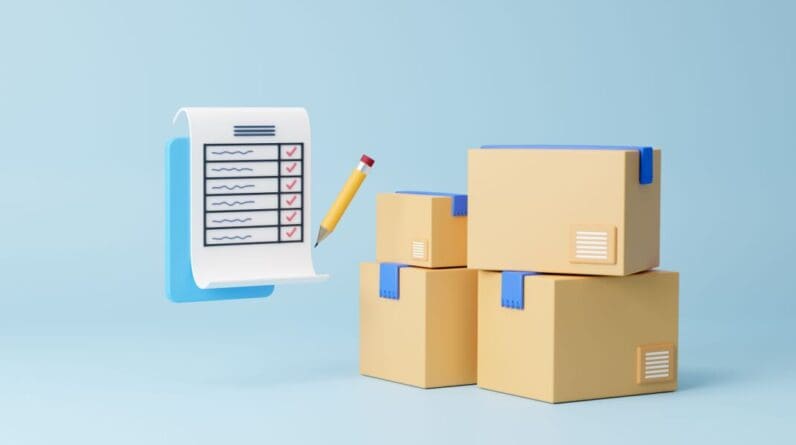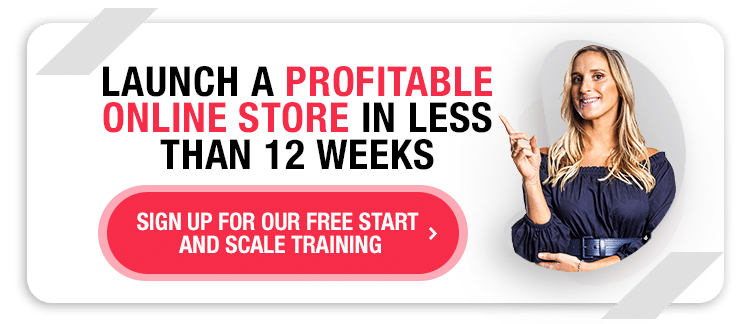
Whether it’s a brand new product for your bubbling new ecommerce store or the launch of your very first product, which will set the foundations for what is to come, it can be easy to dismiss the minimum order quantity as something irrelevant.
After all, your shop is going to sell out in minutes, right? If anything, you should be purchasing more than the minimum in anticipation of all the demand.
While it is great to have a positive mindset toward the launch of a new product, it is also crucial to be realistic. Below, you’ll learn the concept of minimum order quantity, why it is so important to get it right, and how to negotiate with your chosen supplier.
Oh, and prevent you from getting scorned looks from your partner as they weave in and out of unsold products as they try to go make a drink in the kitchen.
What Is MOQ (Minimum Order Quantity)?
First off, let’s define exactly what is MOQ.
Fortunately, in an ecommerce world that is full of complex jargon, minimum order quantity (MOQ) is quite possibly one of the simplest, as it covers the minimum amount of your product you can order at a time.
For example, if you were running a beard accessory business and you were planning on launching a new line of beard oil, you would likely only want to order a small amount at first to test the waters with your audience and see if there is an appetite for your new product.
After all, you don’t want to be sat with 1,000 unsold bottles of the stuff, slowly realizing that mango and tree bark might not be the industry-changing scent you once thought it was.
However, manufacturers also have to look after their bottom line and ensure your order is worth their time and effort, which is why they will likely set you a MOQ of some amount.
Don’t Skip: How to Find a Manufacturer That Won’t Burn You
Who Dictates the MOQ?
As we have just touched on above, your supplier often sets the MOQ, but that doesn’t mean it isn’t non-negotiable.
Remember, the more units a supplier can convince you to purchase, the more money they make. Of course, they want your product to sell so that they can do repeat business with you, but worst comes to worst, they want the security of a large upfront payment.
So don’t get tempted by discounts or incentives to purchase more on your first run of a product. When the product is selling well, and all the beards in your town smell like tree bark, you can revisit those larger quantities and reduce your costs, but at first, it is best to take a cautious approach until it’s tested in the market.

Which Elements Impact the MOQ?
Once you’ve been given the MOQ by your supplier, it’s important to ask a few follow-up questions before you commit. After all, almost every MOQ is negotiable, and there might be elements you can tweak to improve the price or volume further.
“Maybe the MOQ for the actual product is 800 units, but you’ve asked for some sort of color-customized box for the packaging that has made it 5,000 units.” – Kian Golzari, The Product Sourcing Blueprint.
“Maybe the MOQ for the actual product is 800 units, but you’ve asked for some sort of color-customized box for the packaging that has made it 5,000 units.”
Some of the most common elements that impact MOQ include:
Production costs: A higher production cost may lead to a bigger MOQ to ensure it is a profitable endeavor for the supplier.
Short or long-term partnerships: If you have already struck up a relationship with the supplier, or they are confident it will be a long-term partnership, you may be offered better MOQ terms.
Storage and logistics: MOQ can also be influenced by the supplier’s storage capacity and logistical constraints. Larger orders may be more efficient to handle and transport in one go. Storage also affects the quantity on your end of the order. Remember to account for the space you have available to store boxes of products for weeks or months at a time.
Customization or specialization: Customized or specialized products may require larger orders to justify the setup costs and any additional requirements.
Why You Should Opt For a Low MOQ
When a supplier comes to you and says, ‘Yes, you could go for the MOQ, but look at all these shiny additional things you get if you buy this quantity,’ it is only natural to seriously consider their offer.
After all, if the MOQ equates to a cost of $5 per bottle, and a larger purchase means the cost per bottle drops to $4, surely it’s a no-brainer?
Well, when placing the first order of a new product, it’s important to focus more on the overall cost, rather than the cost per bottle. Here’s a quick example.If 1,000 bottles cost $5 per bottle, that is a total cost of $5,000. If 2,000 bottles cost $4 per bottle, that’s a total cost of $8,000.
Now, imagine you sell 800 units in both examples. With the MOQ, you only have 200 units left to sell, but in option two, you have a massive 1,200 left sitting somewhere, taking up space and possibly even going out of stock!
Keep Learning: How to Price a Product – The Definitive Answer
Get Your MOQ In Order and Use Our AI-Powered System to Find the Perfect New Products
Establishing a strong relationship with a reliable supplier can greatly improve your MOQ, along with many other benefits. To learn more about how to use our AI-powered system to discover the perfect next product for your business, check out this free masterclass.








